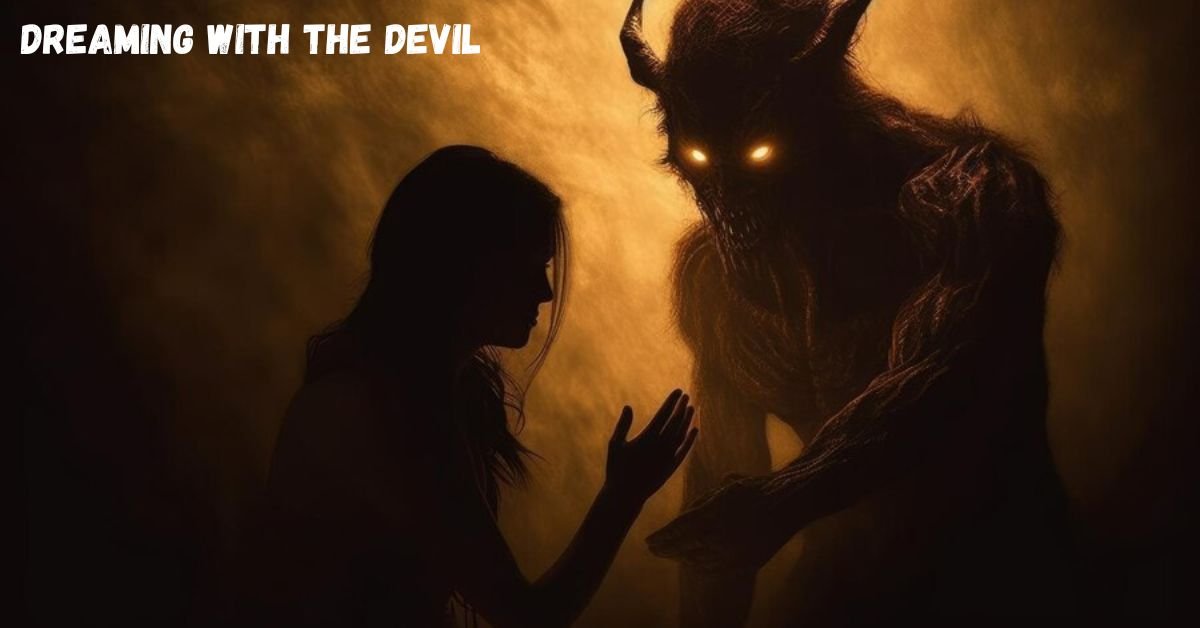Dreams have long been a subject of fascination, offering insights into our subconscious minds. Among the myriad of dream themes, encountering the devil stands out due to its profound symbolism and the intense emotions it evokes. This article delves into the various interpretations of dreaming about the devil, exploring psychological, cultural, and personal perspectives to provide a comprehensive understanding of this enigmatic experience.
Understanding Dreams Involving the Devil
Dreams featuring the devil often represent the unconscious aspects of your personality that appear unclean or ungodly. These dreams may arise when you have a sense of guilt or when emotional aspects have been hidden or buried. While not direct signs of evil, such dreams can serve as warnings for any looming negativity in your life.
Common Themes in Devil Dreams
Dreams involving the devil can manifest in various forms, each carrying distinct implications:
- Confrontation with the Devil: Facing the devil directly may symbolize an internal battle with one’s darker impulses or confronting a personification of fear.
- Temptation Scenarios: The devil tempting you reflects real-life situations where you grapple with moral dilemmas or unethical choices.
- Observing the Devil: Simply seeing the devil without interaction might indicate feelings of guilt or the acknowledgment of negative influences in one’s life.
Psychological Perspectives
From a psychological standpoint, the devil in dreams can be interpreted through various lenses:
- Carl Jung’s Shadow Archetype: Jung proposed that the devil represents the ‘shadow’—the unconscious part of the psyche containing repressed weaknesses and desires. Encountering the devil in dreams may suggest a need to integrate these shadow aspects into conscious awareness.
- Freudian Interpretation: Sigmund Freud might view the devil as a manifestation of repressed sexual or aggressive instincts, symbolizing internal conflicts between one’s desires and societal norms.
Cultural and Religious Contexts
Cultural and religious beliefs significantly influence the interpretation of devil-related dreams:
- Christianity: In Christian contexts, people often see the devil as a tempter and deceiver. Dreaming of the devil might serve as a spiritual warning against sin or a call to strengthen one’s faith.
- Islam: In Islamic tradition, dreams of the devil (Shaytan) are considered disturbances, and it’s recommended to seek refuge through prayer and recitation of scripture.
- Hinduism: While not personified as in Abrahamic religions, negative entities in Hindu dreams could symbolize inner demons or karmic obstacles.
Personal Reflection and Analysis
To derive personal meaning from a devil dream, consider the following steps:
- Assess Emotional Responses: Reflect on the emotions felt during the dream—fear, guilt, defiance—as they can provide clues to underlying issues.
- Identify Life Parallels: Examine current life situations that may mirror the dream’s themes, such as moral conflicts or encounters with manipulative individuals.
- Explore Personal Beliefs: Consider how your cultural, religious, or personal beliefs about the devil might influence the dream’s content and your interpretation.
- Seek Professional Insight: If the dream is distressing or recurrent, consulting a psychologist or dream analyst can provide deeper insights.
Comparison Chart: Psychological vs. Cultural Interpretations of Devil Dreams
| Aspect | Psychological Interpretation | Cultural/Religious Interpretation |
|---|---|---|
| Source of Imagery | Manifestation of the unconscious mind, reflecting internal conflicts or repressed desires. | Influenced by cultural myths, religious teachings, and societal beliefs about the devil. |
| Purpose of the Dream | To bring awareness to unresolved psychological issues, prompting personal growth and self-integration. | To convey moral lessons, spiritual warnings, or reinforce cultural norms and values. |
| Emotional Tone | Often linked to personal feelings of guilt, fear, or anxiety stemming from one’s psyche. | May evoke fear or caution, reinforcing the cultural or religious significance of the devil. |
| Approach to Resolution | Encourages introspection, therapy, or personal development to address underlying psychological issues. | Suggests spiritual practices, adherence to religious teachings, or community guidance to mitigate negative influences. |
Conclusion
Dreaming of the devil is a multifaceted experience, rich with psychological depth and cultural significance. Exploring these dreams offers valuable insights into one’s inner world and external influences. Embracing them for self-reflection fosters personal growth, self-awareness, and a deeper understanding of the psyche.

